Why You Shouldn’t Mix Tires
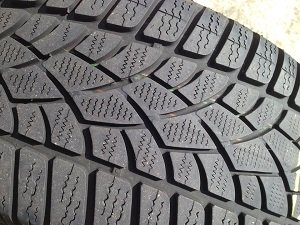
Most Common Causes for a Flat Tire
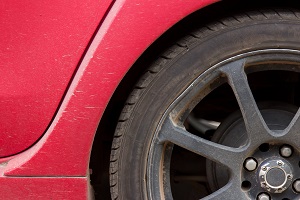 ...[more]
...[more]Why Does My Tire Pressure Change by Itself?
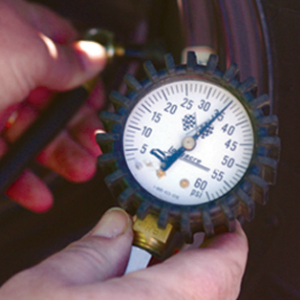
How to Avoid a Summer Tire Blowout
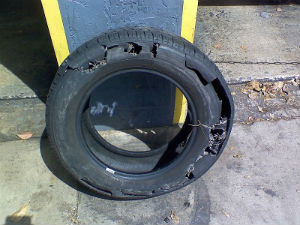
Why is my Car Shaking?
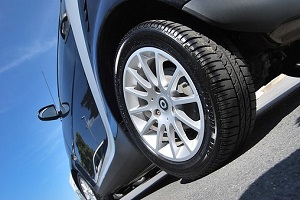
Basic Tire Maintenance
A blown tire can ruin more than just your day. Tire trouble can cost you money, time, or even damage your vehicle. Sometimes there is no warning your tire is about to blow. Road debris can cause a sudden puncture and there won’t be much you can do, but most tire issues can be prevented with simple monitoring and maintenance. Check out our list of basic tire maintenance below.
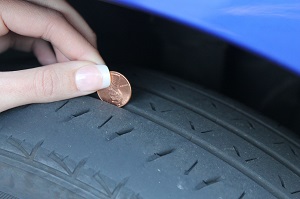 Check Your Tire Pressure
Check Your Tire Pressure
The PSI of your tires varies depending on the type of tire you have and the type of driving you do. Your owner’s manual should contain a recommended PSI for your stock tires or you can check with the manufacturer of your current tire. Normally, PSI should be around 30 to 35. This means there is 30 to 35 pounds of pressure per square inch. All you nee ...[more]
The Effect of Bigger Tires on Your Vehicle
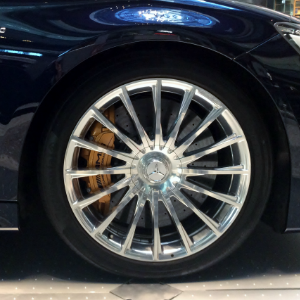 Bigger wheels and tires are a desirable upgrade for not only the off-road extremist but many everyday drivers as well. For example, you can go to Wal-Mart and count several SUVs in the parking lot with 20-inch rims because even “Glamma” wants to look cool. Tires can really make or break your vehicle in relevance to style and performance. Driving on bad tires can take a toll on your vehicle, and upgrading to new tires can make your vehicle drive like new again. When upgrading to bigger tires you also need to upgrade your rims. There are several benefits and disadvantages when considering an upgrade to tires or wheels.
Bigger wheels and tires are a desirable upgrade for not only the off-road extremist but many everyday drivers as well. For example, you can go to Wal-Mart and count several SUVs in the parking lot with 20-inch rims because even “Glamma” wants to look cool. Tires can really make or break your vehicle in relevance to style and performance. Driving on bad tires can take a toll on your vehicle, and upgrading to new tires can make your vehicle drive like new again. When upgrading to bigger tires you also need to upgrade your rims. There are several benefits and disadvantages when considering an upgrade to tires or wheels.
If you are driving a truck, you may want to consider getting a lift kit. This would allow room for massive wheels and tires depending on how big of a lift you get. For ...[more]
History of the Modern Tire
Whether it’s the price of gas, the people you spend time with, or the level of satisfaction you have with your job, one thing in life is certain, things change. It may not be a surprise your vehicle, the way it works, and how much it costs has changed significantly over the years. But have you ever thought about how much tires have changed?
 Before air was introduced into tire designs, they were covered in wood, iron, solid rubber, and even leather. Although these weren’t the most shock absorbent materials, they provided durability and grip. It took many years to develop the tires we use today. Let’s look at tires and how they have progressed through the years.
Before air was introduced into tire designs, they were covered in wood, iron, solid rubber, and even leather. Although these weren’t the most shock absorbent materials, they provided durability and grip. It took many years to develop the tires we use today. Let’s look at tires and how they have progressed through the years.
The modern tire was patented in 1847 by Robert Thompson but had little success. At the time, consumers preferre ...[more]
What you Need to Know Before Buying New Tires
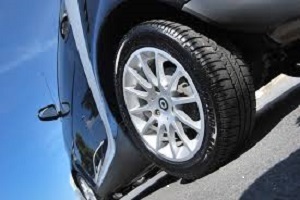
Be Aware of Your Spare
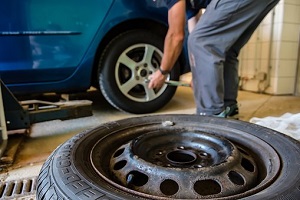
| << Previous | 123456789 | Next >> |



